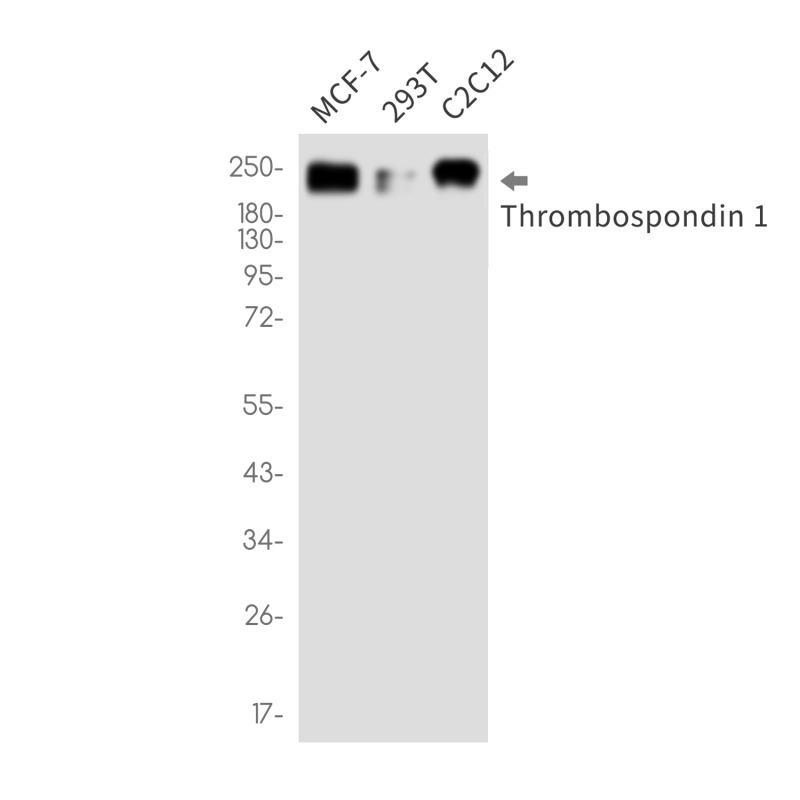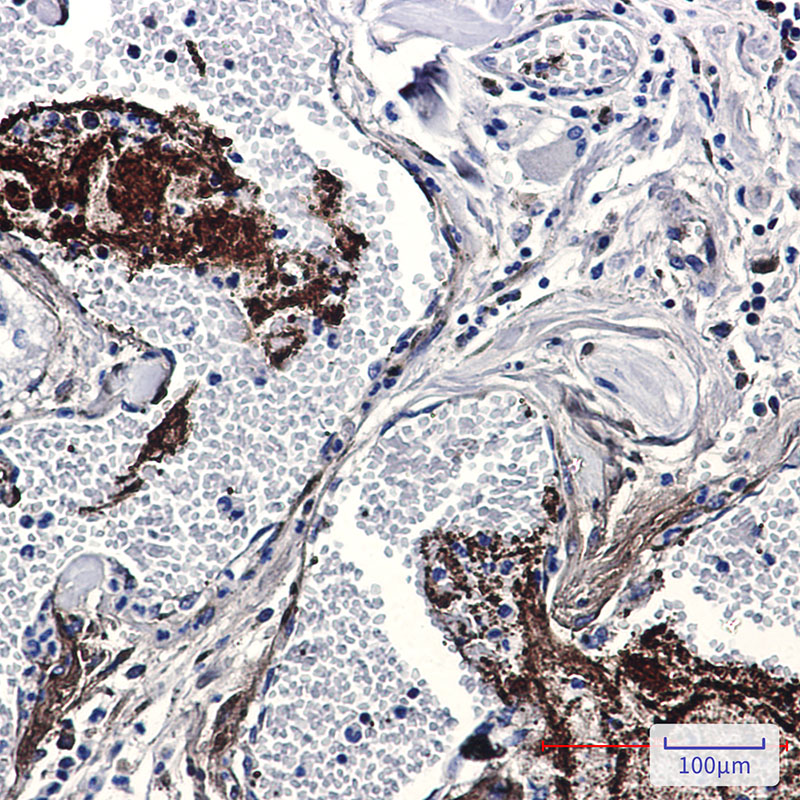

| WB | 1/500-1/1000 | Human,Mouse,Rat |
| IF | 1/20 | Human,Mouse,Rat |
| IHC | 1/50-1/100 | Human,Mouse,Rat |
| ICC | 技术咨询 | Human,Mouse,Rat |
| FCM | 咨询技术 | Human,Mouse,Rat |
| Elisa | 咨询技术 | Human,Mouse,Rat |
| Aliases | TSP; THBS; TSP1; TSP-1; THBS-1 |
| Entrez GeneID | 7057 |
| WB Predicted band size | Calculated MW: 129 kDa; Observed MW: 170 kDa |
| Host/Isotype | Rabbit IgG |
| Antibody Type | Primary antibody |
| Storage | Store at 4°C short term. Aliquot and store at -20°C long term. Avoid freeze/thaw cycles. |
| Species Reactivity | Human,Mouse |
| Immunogen | Recombinant protein of human Thrombospondin 1 |
| Formulation | Purified antibody in TBS with 0.05% sodium azide,0.05%BSA and 50% glycerol. |
+ +
以下是关于Thrombospondin 1(TSP-1)抗体的3篇参考文献示例(简要概括内容):
---
1. **文献名称**: "Thrombospondin-1 suppresses tumor growth and angiogenesis in murine breast cancer models"
**作者**: Lawler, J. et al.
**摘要**: 该研究利用TSP-1特异性抗体,验证了TSP-1在抑制小鼠乳腺癌血管生成和肿瘤生长中的作用,揭示其通过拮抗VEGF信号通路发挥抗肿瘤效果。
---
2. **文献名称**: "Thrombospondin-1 modulates immune cell function in experimental autoimmune encephalomyelitis"
**作者**: Lopez-Dee, Z. et al.
**摘要**: 研究通过抗TSP-1抗体阻断实验,证明TSP-1调节T细胞活化和炎症反应,影响多发性硬化症(EAE模型)的病理进程。
---
3. **文献名称**: "Antibody-mediated targeting of thrombospondin-1 inhibits pancreatic ductal adenocarcinoma growth and metastasis"
**作者**: Yee, K.O. et al.
**摘要**: 开发了一种靶向TSP-1的单克隆抗体,在胰腺癌模型中显示其能抑制肿瘤转移并增强化疗药物递送,机制与基质重塑相关。
---
*注:以上文献信息为示例,实际引用时建议通过PubMed或Google Scholar核对具体细节及最新研究。*
Thrombospondin 1 (TSP-1) is a multifunctional glycoprotein belonging to the thrombospondin family, known for its role in cell-matrix interactions, angiogenesis regulation, and modulation of cellular behaviors such as proliferation, adhesion, and apoptosis. It is secreted by various cell types, including platelets, endothelial cells, and immune cells, and interacts with multiple receptors (e.g., CD36. integrins) and extracellular matrix components. TSP-1 is particularly recognized for its anti-angiogenic properties, primarily through activation of TGF-β and inhibition of endothelial cell migration. Its involvement in pathological processes, including cancer progression, fibrosis, and cardiovascular diseases, has made it a significant research target.
Antibodies against TSP-1 are essential tools for studying its expression, localization, and function in both normal and diseased tissues. These antibodies, often monoclonal or polyclonal, are used in techniques like Western blotting, immunohistochemistry, and ELISA to quantify TSP-1 levels or map its distribution in biological samples. Some antibodies target specific domains or epitopes of TSP-1. enabling researchers to dissect its structure-function relationships. In therapeutic contexts, TSP-1-blocking antibodies have been explored to modulate angiogenesis in cancer or promote tissue repair. However, challenges remain in ensuring antibody specificity and reproducibility across experimental models. Overall, TSP-1 antibodies continue to advance our understanding of its dual roles in tissue homeostasis and disease pathogenesis.
×